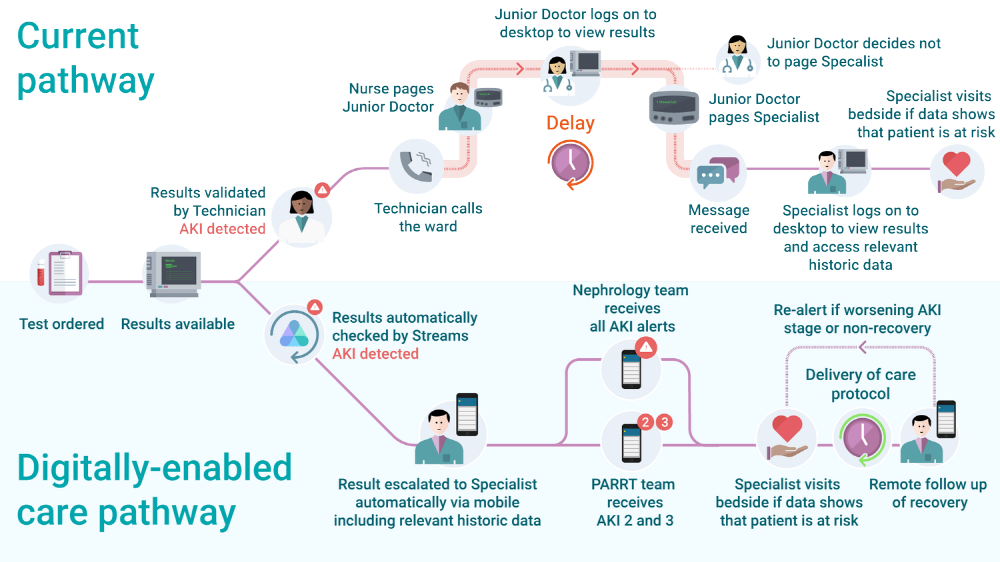DeepMind announced that it has developed a system that detects signs of acute kidney failure 48 hours before onset.
According to a research team at the University of Pittsburgh School of Medicine, nearly 2 million patients die of acute kidney every year. However, acute kidney injury does not have immediate and obvious symptoms, making it difficult to diagnose a doctor. Studies have shown that early detection of acute kidney damage reduces the risk of life-threatening.
In cooperation with the American Veterans Association, the DeepMind research team entered the electronic medical records provided by more than 100 hospitals under the jurisdiction of the Veterans Association into an AI dataset to learn treatment information for hundreds of thousands of patients into AI. Of course, personal information such as name and social security number were removed from the dataset.

The AI learned in this way is said to be able to predict in 9 out of 10 people with acute kidney failure that require artificial dialysis. Signs can be detected 48 hours before the onset of acute kidney failure. It is expected that patients will be able to treat directly before their condition worsens.
But what AI does is predict outbreaks. As it is now, the actual doctor is in charge. DeepMinds can make predictions with AI, but they can’t really help patients because they don’t have the right tools to warn experts. It says technology is essential. It was also clear that we are working on how to accurately and quickly communicate AI predictive information to specialists.
It also reported that the DeepMind Health division will soon be incorporated into Google Health and will move its office from DeepMind’s headquarters in London to Google’s headquarters in California. Related information can be found here .

